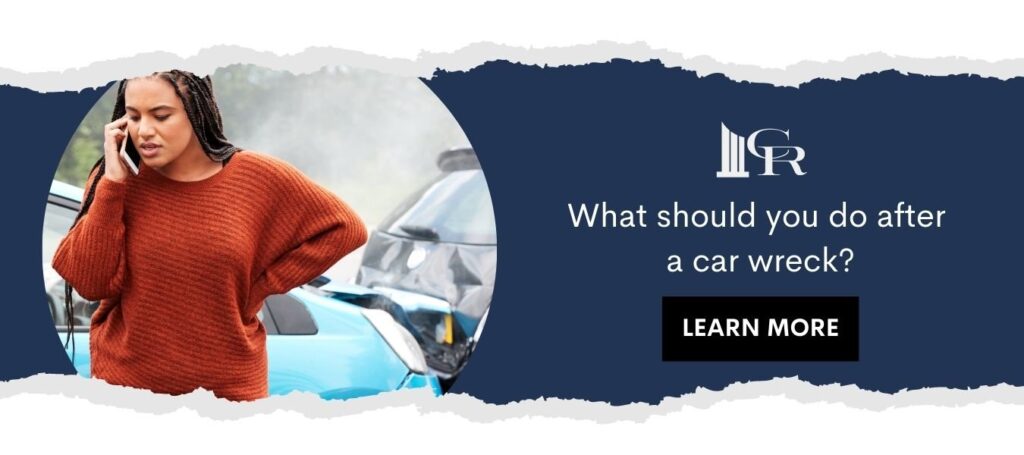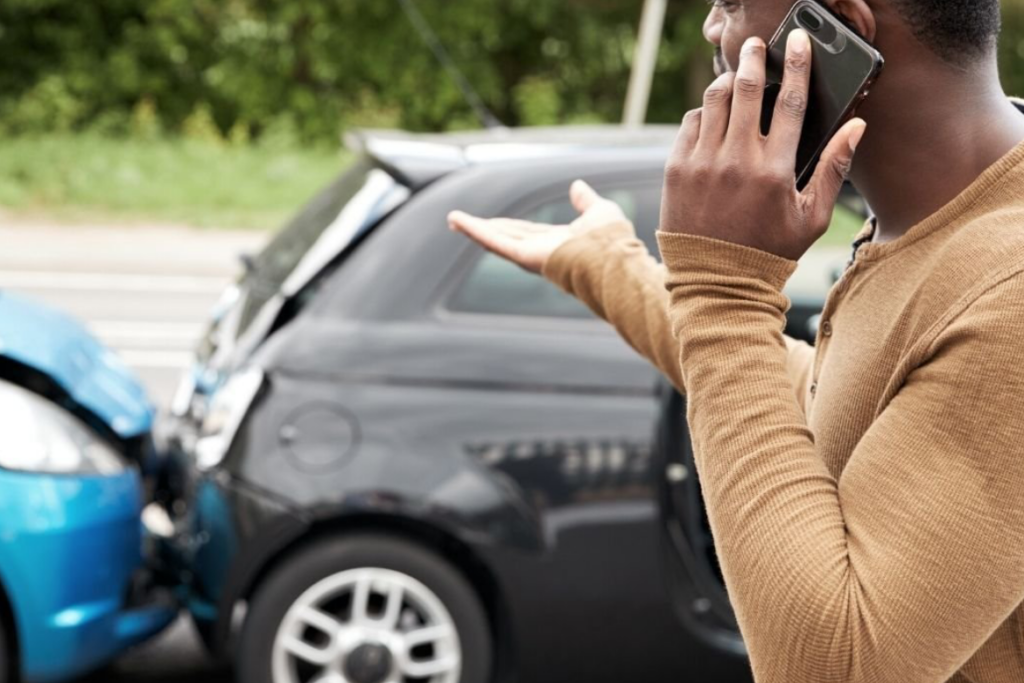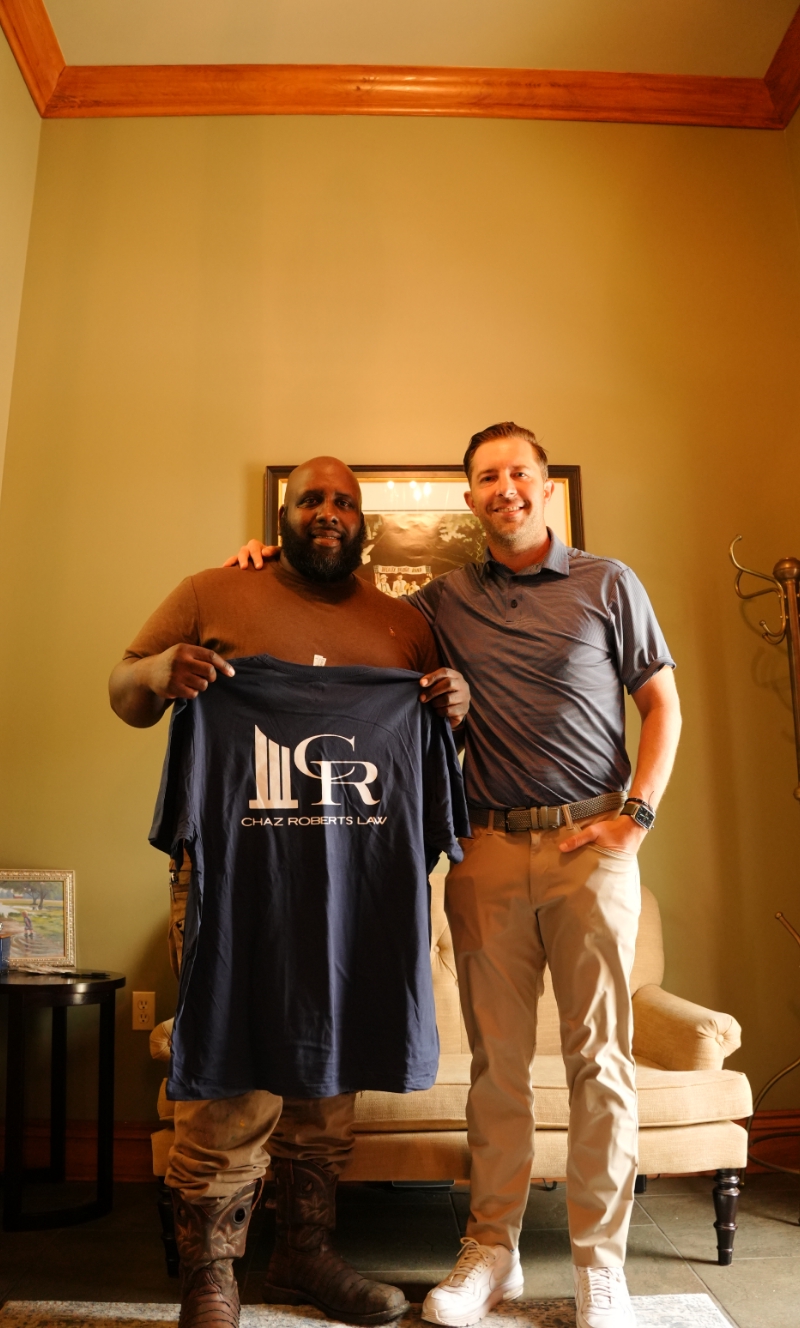When people are involved in vehicle accidents in Louisiana, oftentimes, they want to hurry and notify their insurance company, and the other driver’s insurance company. However, the way one communicates with them may make a significant difference in the level of compensation the insurance company provides to cover the losses.
At Chaz Roberts Law Firm we can help you navigate this tricky part of the process. Friendly reminder: We encourage clients not to talk to the insurance directly. Everything you say and do is being recorded, therefore let us handle the communication for you.
Now, let’s dive into the details:
- Insurance companies are not on your side.
- What to say to the insurance company after a car accident
- What no to say to the insurance company after a car accident
- Should I talk with the other driver's insurance company?
- How can a personal injury lawyer help?

Insurance companies are not on your side.
Insurance companies are for-profit businesses that seek to make money in two ways:
- Insurance companies make money by charging their customers premiums for insurance coverage.
- They save money by denying insurance claims and paying out as little as possible on claims.
They take advantage of premium payments by promising to be on your side if you are injured in an accident.
Once they have convinced you to purchase their insurance, though, and it's time to make a claim for a loss covered by the policy, the second objective becomes more important. You can expect your insurance company to either offer you a small sum to cover an accident or even outright refuse your claim.
Keeping these interests in mind when dealing with an insurance firm may assist you in determining what to say and what not to say.
What to say to the insurance company after a car accident
Again, let me restate, you should not talk to your insurance company without representation after a car wreck. You should call a lawyer and discuss the case prior to talking to any insurance company.
However, it should be noted that you are often legally required to inform your own insurance company about a collision as your duty as an insured. We do this for you once we represent you. If unrepresented, you can report that you have been involved in the collision (TO YOUR INSURANCE COMPANY), and discuss how the collision occurred.
This is true even if the other driver was at fault. The insurance company will note your version of the events and can deny the other person’s claim if your story is consistent and backed up by other corroborating evidence such as a police report and independent witnesses.
The most essential guideline for notifying your insurance company about a collision is to keep it simple. You can inform the insurance agent:
- There was a crash
- Where the crash happened
- Whether your car was damaged
- Basic facts of how the collision occurred
Don't say much more than is necessary in your case; although it's a good idea to read the insurance policy to ensure that you aren't required to give further information. Allow them to send a claims adjuster over to look at the scene and conduct an inquiry.
However, we encourage clients not to talk to the insurance directly. Everything you say and do is being recorded, therefore let us handle the communication for you.
What not to say to the insurance company after a car accident
After a car accident, what not to say to your insurance company is far more critical. That’s why we recommend always consulting with or hiring a lawyer before speaking with an insurance company. Obviously, you must tell the truth, but stating any of the following may severely harm your case and could cause them to offer less coverage if they make one:
- Accepting responsibility or fault – It's worth noting that claiming responsibility for a collision might hurt your case and result in a lesser settlement offer from the insurance company. It will almost definitely cause your premiums to rise and your claim for injuries to be denied.
- Volunteer information – It's better to wait until you have all of the facts before speaking. When you speculate excessively and talk about what might have happened, you risk creating conflicting statements and an incorrect version of events, which damages your credibility.
- Minimize the severity of your injuries – If you downplay your injuries following a collision, the insurance company will reduce the offer and utilize your statements against you if your injuries get worse. Never discuss your injuries with an adjuster. Your attorney can handle the discussion of injuries. You can simply say, “Yes I was hurt, but you need to speak to my attorney about my injuries.”
Should I talk with the other driver's insurance company?
In some situations, the other vehicle's insurance carrier will contact you, or you will be tempted to communicate with them. This is frequently a very bad idea. The only time I allow my clients to speak to an adjuster from the other person’s insurance is in order to line up a rental or to discuss when and where a vehicle will be located in order to be examined by an adjuster for property damage purposes.
The only time it might help your case is if the other motorist has misled their insurance firm about the circumstances of the accident. It may be possible to clarify things with admission to their insurance company. HOWEVER, this very risky move should be completed in a lawyer’s office where the lawyer can monitor and object as necessary during the recorded call. Rarely, do I ever allow my clients to give a recorded statement to the insurance company.
If the other driver has in fact lied about the crash in an attempt to dodge responsibility, hiring a personal injury lawyer to represent and protect your interests is the best move you can make.
When a lawsuit is filed, insurance companies will frequently utilize "friendly" recorded statements against the claimant in the future. I have seen this all too often. What I often say is “what you say CAN and WILL be used against you.”
How can a personal injury lawyer help?
A personal injury attorney can assist you in dealing with the insurance firms that are involved in the wake of a vehicle accident. They understand how insurance companies operate and how they will respond to a collision. They've seen the many traps that victims fall into while dealing with their insurance company, as well as how to avoid them.
Finally, having legal assistance may help your insurance company take your claim more seriously. They will know that you have hired a lawyer if they find out that you have, and they will be more likely to make a higher initial offer that is closer to what you deserve.
Have you been involved in a car accident?
Chaz Roberts Law Firm can work to make sure your insurance company provides the coverage they promised to provide and hold them accountable for bad faith insurance practices.



